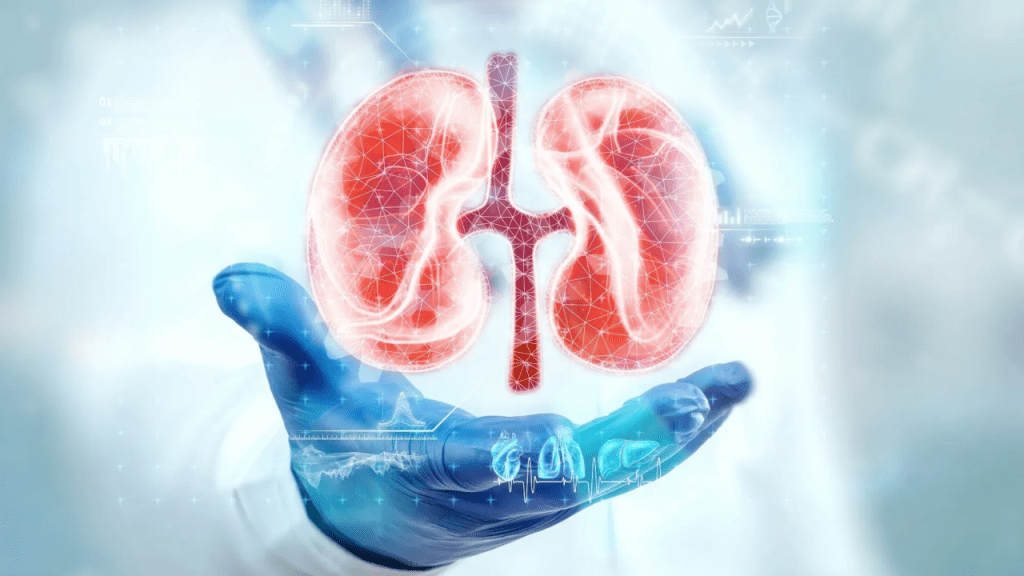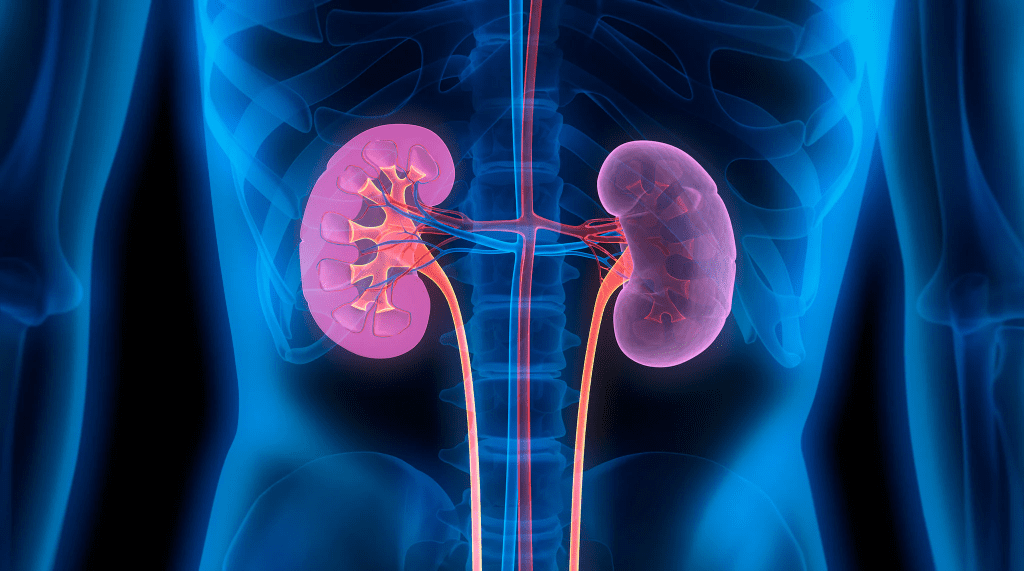Our kidneys work around the clock to keep your body in balance, filtering out waste, regulating fluids, and managing essential minerals. Yet, many of us overlook the subtle signs that our kidneys might be struggling. Recognizing these early signals can be the difference between timely intervention and serious health complications. In this article, we’ll explore the seven key warning signs your kidneys may be in danger, and what you can do to protect your health.
Understanding Your Kidneys: The Unsung Heroes of Your Body

Your kidneys are more than just organs; they are the guardians of your overall well-being. Every day, they filter nearly 50 gallons of blood, removing toxins and excess fluids, while also helping maintain the perfect balance of electrolytes and hormones. When these vital organs start to falter, your body sends out warning signals that shouldn’t be ignored. Think of your kidneys as the silent operators of your internal system—if they’re struggling, you’ll feel the effects almost immediately.
1. Changes in Urination: Your Body’s Early Alert System
Have you ever noticed a sudden change in how often you visit the bathroom? Or perhaps your urine appears foamy or discolored? These subtle shifts are not just random—they can be early indicators that your kidneys are under stress.
Video : 6 Signs Your Body Gives If Your Kidney Is In Danger!
- Increased or Decreased Frequency: Whether you’re suddenly making extra trips to the bathroom or finding it difficult to pass enough urine, changes in frequency can be a sign that your kidneys are not filtering properly.
- Foamy or Bubbly Urine: Foam in your urine might suggest that proteins, which should normally be retained in your blood, are leaking into your urine. This can be an early marker of kidney damage.
- Dark, Bloody, or Cloudy Urine: Unusual colors or the presence of blood indicate that your kidneys might be struggling with inflammation or infection.
- Frequent Nighttime Urination: Waking up multiple times a night to urinate disrupts your sleep and could be a red flag for kidney issues.
Imagine your kidneys as a state-of-the-art water filtration system. If the filter starts to clog, the water’s clarity changes—similarly, if your urine’s appearance alters, it could mean the filter in your body is compromised. If you notice these changes, it’s crucial to stay hydrated and consult your healthcare provider for a thorough evaluation.
2. Swelling in the Legs, Feet, and Face: When Fluid Retention Speaks Up
Do your feet or face feel puffy when you wake up? Swelling is one of the most visible signs that your kidneys might be having trouble managing your body’s fluid levels.
- Fluid Retention Explained: Your kidneys regulate the balance of sodium and water in your body. When they fail to perform this task efficiently, excess fluid accumulates in your tissues, leading to swelling, especially in the legs, feet, and around the eyes.
- Puffy Eyes: Noticeable puffiness, particularly in the morning, can signal that proteins are leaking into your urine, disturbing your body’s fluid balance.

Imagine carrying a bucket with a slow leak; eventually, you’ll notice the water level dropping or the bucket starting to sag. Similarly, if you’re experiencing swelling without an obvious cause, it’s your body’s way of telling you something isn’t right. Reducing salt intake, elevating your legs, and seeking medical advice can help manage and diagnose the underlying issue.
3. Persistent Fatigue & Weakness: When Your Energy Runs Dry
Ever felt inexplicably exhausted, even after a good night’s sleep? Fatigue and weakness can be more than just signs of a busy lifestyle—they might be indicators of kidney trouble.
- Anemia and Toxin Buildup: Your kidneys are responsible for producing a hormone that prompts your body to make red blood cells. When kidney function declines, fewer red blood cells are produced, leading to anemia. This can leave you feeling drained and fatigued. Moreover, if toxins build up in your blood because your kidneys aren’t filtering them out efficiently, you may experience persistent weakness.
- Lifestyle Impact: Lack of energy can affect every aspect of your life, from work to leisure. When you’re constantly tired, even simple tasks can feel overwhelming.
Think of it like running your car on low fuel—the performance drops, and everything becomes sluggish. If you’re constantly battling fatigue, it’s essential to get a comprehensive blood test and discuss your symptoms with your doctor. Incorporating iron-rich foods, like spinach and lentils, into your diet may also help boost your energy levels.
4. Skin Itching & Dryness: When Toxins Talk Back
Have you noticed that your skin feels unusually dry or itchy? This isn’t always just a dermatological issue—it might be a sign that your kidneys are struggling to remove toxins from your body.
- Toxin Buildup: When your kidneys don’t function optimally, waste products accumulate in your bloodstream. This can lead to skin conditions such as itching and dryness.
- Electrolyte Imbalance: An imbalance in minerals like calcium and phosphorus, which your kidneys help regulate, can exacerbate skin problems, making your skin feel even more irritated and uncomfortable.
Video : If Your Kidney Is In Danger The Body Will Give You These 7 Warning Signs !
Picture your skin as a canvas that reflects your internal health. When toxins build up, they leave visible marks on your body, much like smudges on a painting. To combat these effects, make sure to stay hydrated, use a good quality moisturizer, and avoid processed foods high in phosphorus. These steps can help soothe your skin and support your kidney health.
5. Persistent Back Pain or Side Pain: Not Just a Muscle Ache
Back pain is common, but persistent pain in your lower back or sides—especially if it doesn’t improve with movement—can be a red flag for kidney issues.
- Kidney-Related Pain: Unlike typical muscle aches, pain related to your kidneys is often sharp, constant, and located on the sides or lower back. This pain could indicate infections, kidney stones, or other kidney-related conditions.
- Identifying the Difference: Unlike the soreness you might feel after a workout, kidney pain won’t ease with rest or stretching. It’s a persistent discomfort that demands attention.
Think of it like a warning light on your car’s dashboard—ignoring it might lead to a breakdown. If you experience unrelenting back or side pain, it’s wise to seek medical help immediately. Proper diagnosis through imaging and tests can pinpoint the exact cause, ensuring that you get the treatment you need.
6. Metallic Taste & Bad Breath: When Your Mouth Reflects Internal Trouble

Your mouth can be a window to your internal health. A persistent metallic taste or foul breath may be more than just an inconvenience—they could be signs of toxin buildup due to kidney issues.
- Uremia Explained: When your kidneys are not filtering properly, waste products such as urea accumulate in your blood. This condition, known as uremia, can lead to a metallic taste in your mouth and ammonia-like bad breath.
- Dietary Considerations: A diminished appetite and aversion to certain foods might also accompany these symptoms, making it harder to maintain a balanced diet.
Imagine biting into your favorite fruit only to be met with a strange, metallic aftertaste. That discomfort could be your body’s way of alerting you to an underlying problem. Drinking more water, maintaining excellent oral hygiene, and moderating your intake of processed foods can help manage these symptoms while you seek professional advice.
7. Trouble Concentrating & Dizziness: When Your Brain Feels Foggy
Have you ever experienced sudden bouts of dizziness or found it hard to concentrate? These cognitive symptoms might be linked to kidney issues that are affecting the oxygen supply to your brain.
- Brain Function and Kidney Health: When your kidneys are not functioning properly, the reduced oxygen supply to your brain can lead to dizziness, memory lapses, and difficulty focusing. These aren’t just minor inconveniences—they can seriously affect your daily life.
- Lifestyle Adjustments: Incorporating brain-boosting foods such as nuts and berries into your diet, along with staying well-hydrated, can support both your cognitive function and kidney health.
Think of your brain as a high-performance computer that needs a steady supply of power to run smoothly. When that power is compromised, everything starts to lag. Recognizing these symptoms early and taking steps to boost your overall health can make a significant difference in your quality of life.
Preventive Measures: Keeping Your Kidneys Healthy

Prevention is always better than cure, especially when it comes to kidney health. Simple lifestyle adjustments can help maintain optimal kidney function and prevent complications down the road.
- Stay Hydrated: Water is essential for flushing out toxins and keeping your kidneys functioning properly. Aim to drink plenty of fluids throughout the day.
- Balanced Diet: Focus on a diet rich in fruits, vegetables, and whole grains while limiting salt, sugar, and processed foods. Think of your diet as the fuel that keeps your kidneys running smoothly.
- Regular Check-Ups: Don’t wait for symptoms to appear. Regular medical check-ups and blood tests can help detect any potential issues early on.
- Active Lifestyle: Exercise not only improves overall health but also aids in maintaining proper blood pressure, which is crucial for kidney health.
- Monitor Medications: Some over-the-counter medications and supplements can affect your kidneys. Always consult with your healthcare provider before starting new medications.
When to Consult a Doctor: Listening to Your Body’s Alerts
It’s crucial to recognize that while these symptoms can be alarming, they aren’t a guaranteed diagnosis of kidney failure. However, if you experience multiple signs consistently—especially changes in urination, unexplained swelling, or persistent fatigue—it’s time to consult a doctor. Early detection and treatment can prevent serious complications, keeping your kidneys—and your overall health—in check.
Imagine your health as a finely tuned orchestra; each instrument must work in harmony for a beautiful performance. When one instrument, like your kidneys, starts to falter, the entire melody can be thrown off. Listening to your body’s signals and seeking professional advice can help restore balance before it’s too late.
Conclusion
Your kidneys play a vital role in your overall health, and ignoring the warning signs can lead to serious complications. From changes in urination and swelling to persistent fatigue and cognitive issues, each signal is your body’s way of saying, “Pay attention!” By understanding these seven alarming signals and taking proactive steps—such as staying hydrated, eating a balanced diet, and scheduling regular check-ups—you can protect your kidney health and enhance your quality of life. Remember, early detection is key. Listen to your body, and don’t hesitate to seek help if something doesn’t feel right.
Taking charge of your kidney health today means enjoying a healthier, more vibrant tomorrow. Stay informed, stay active, and always remember that your body gives you the clues—it’s up to you to decode them and act accordingly.


